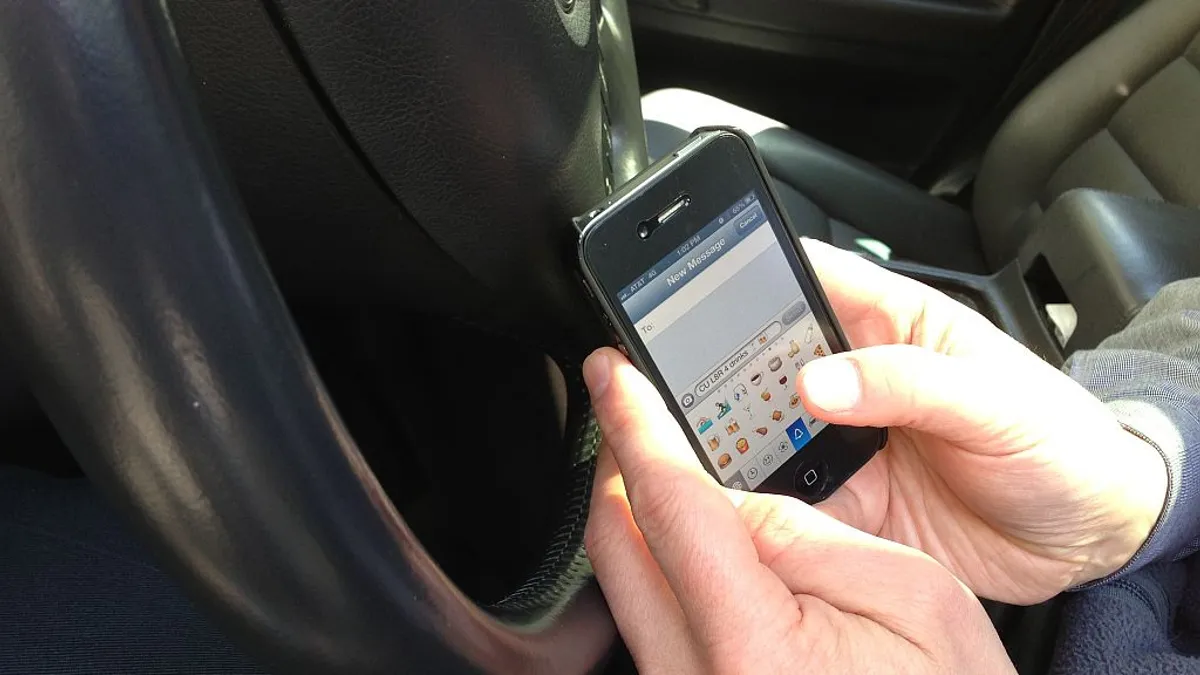Dive Brief:
- A report by road analytics firm Zendrive found that drivers distracted by their smartphones are for the first time the biggest threat to safety, ahead of drunk drivers.
- The report, compiled after the company analyzed 160 billion miles of driver data, found that 6,227 pedestrians lost their lives to drivers most likely distracted by their smartphone. It also found, based on a survey of 500 people, that close to 90% of drivers believe they are safe on the roads, but simultaneously admit to using their phone up to 20% of the time that they're driving.
- "It's almost a part of the human condition now: to be distracted by your phone regardless of where you are,” Zendrive CEO Jonathan Matus told Smart Cities Dive in an interview.
Dive Insight:
As the rate of traffic deaths continue to climb in the United States, cities have had to wrestle with questions over how they can redesign streets to more effectively accommodate pedestrians, while initiatives such as Vision Zero have also given them plenty to think about as they try and stamp out road deaths. But this report highlights one area that will be hard to change: human behavior, especially the desire to be connected at all times, even when behind the wheel.
"Humans become very much dependent emotionally and functionally on these devices,” Matus said. “At all times, we have our smartphones about six feet or less from our body throughout the day. It's the source of knowledge, the source of connection, the source of problem-solving for us.”
This report makes clear cities must tackle distracted driving if they are to bring down traffic deaths. And while they can encourage alternatives like using transit, which the American Public Transportation Association (APTA) has said is safer, changing human behavior in any setting is a tough nut to crack. Zendrive is implementing initiatives such a the #TextYouLater challenge to encourage people to stay off their phones while driving, but it could be uphill work that requires a collaborative approach.
“It's an extension of our psyche and of our brain, and as such it's extremely difficult for us to carve out commuting time as a time where we shouldn't be distracted and shouldn't be using this superpower that we became very accustomed to," Matus said.












